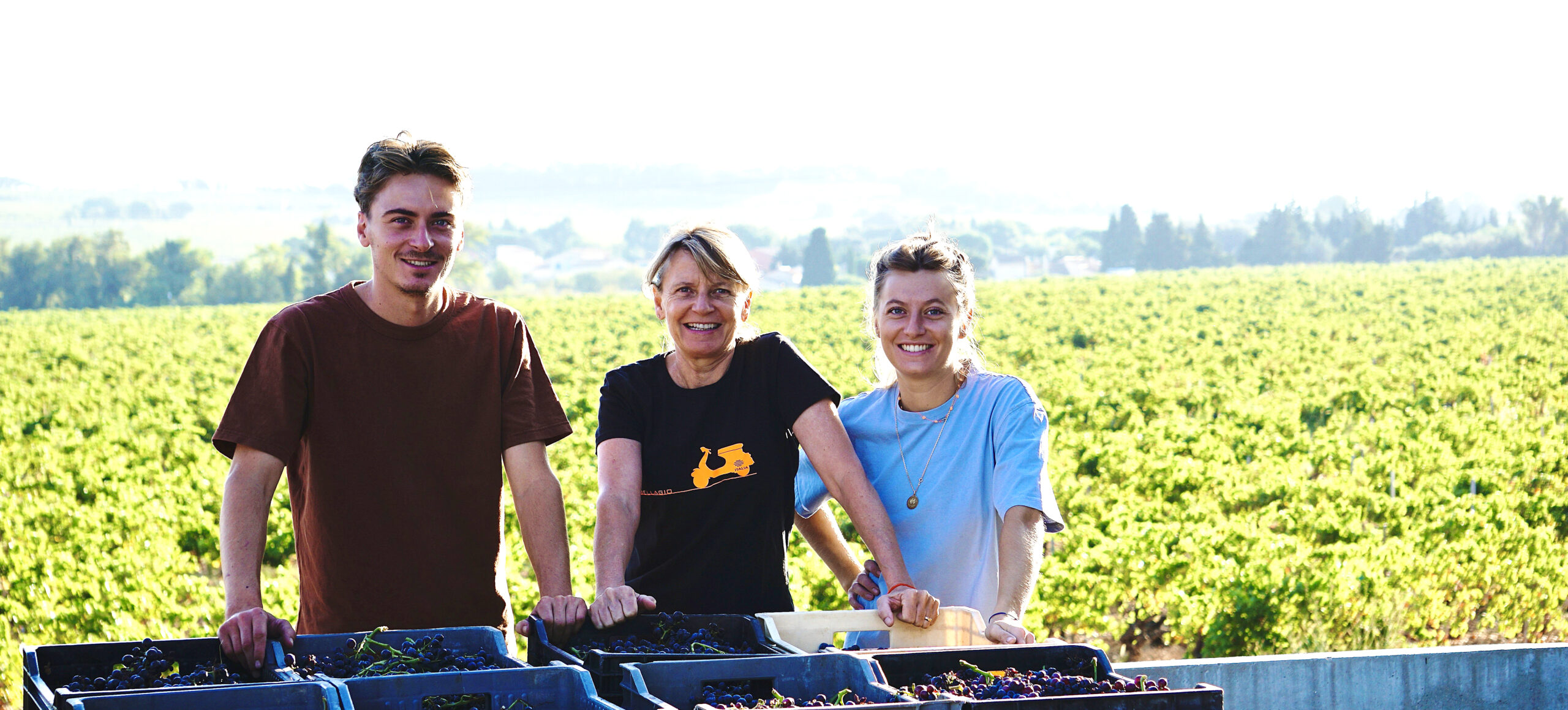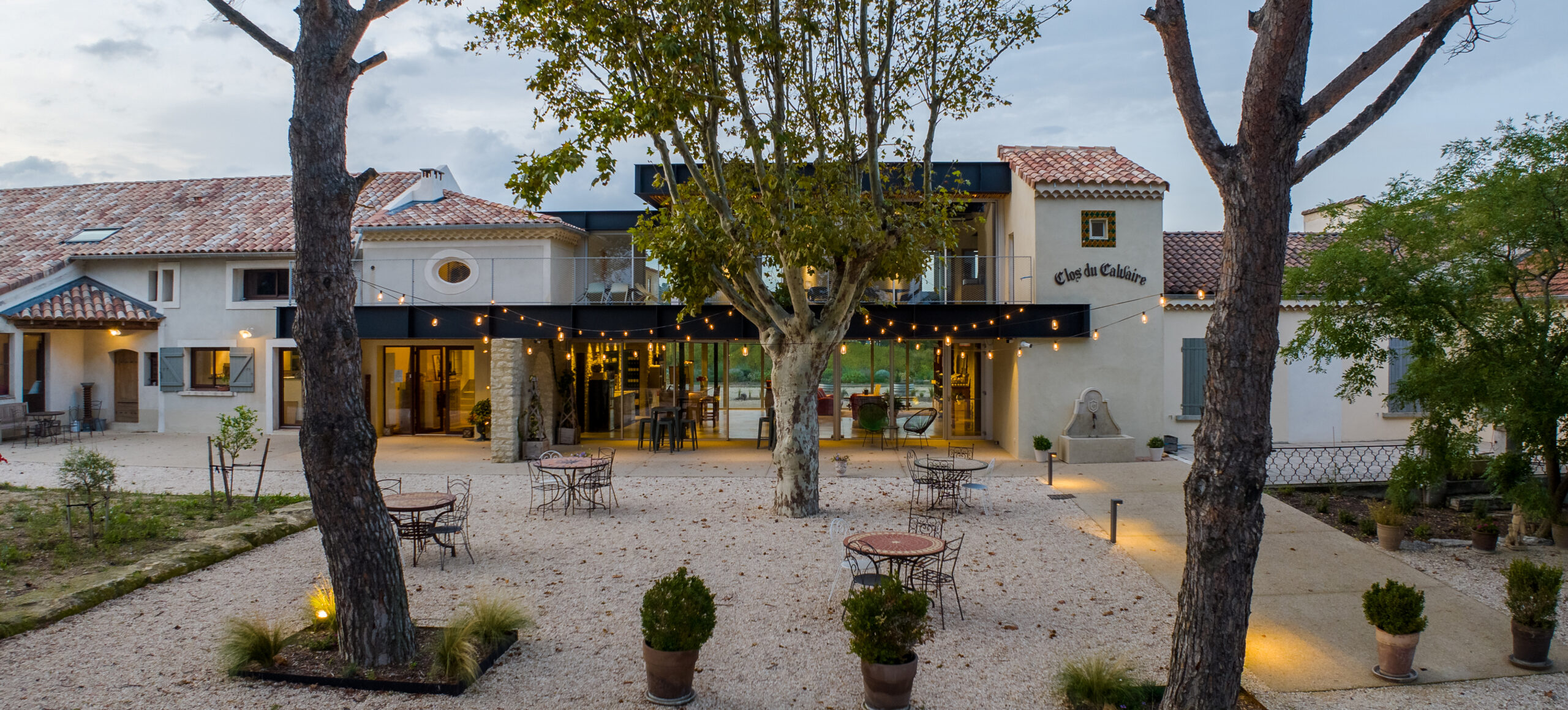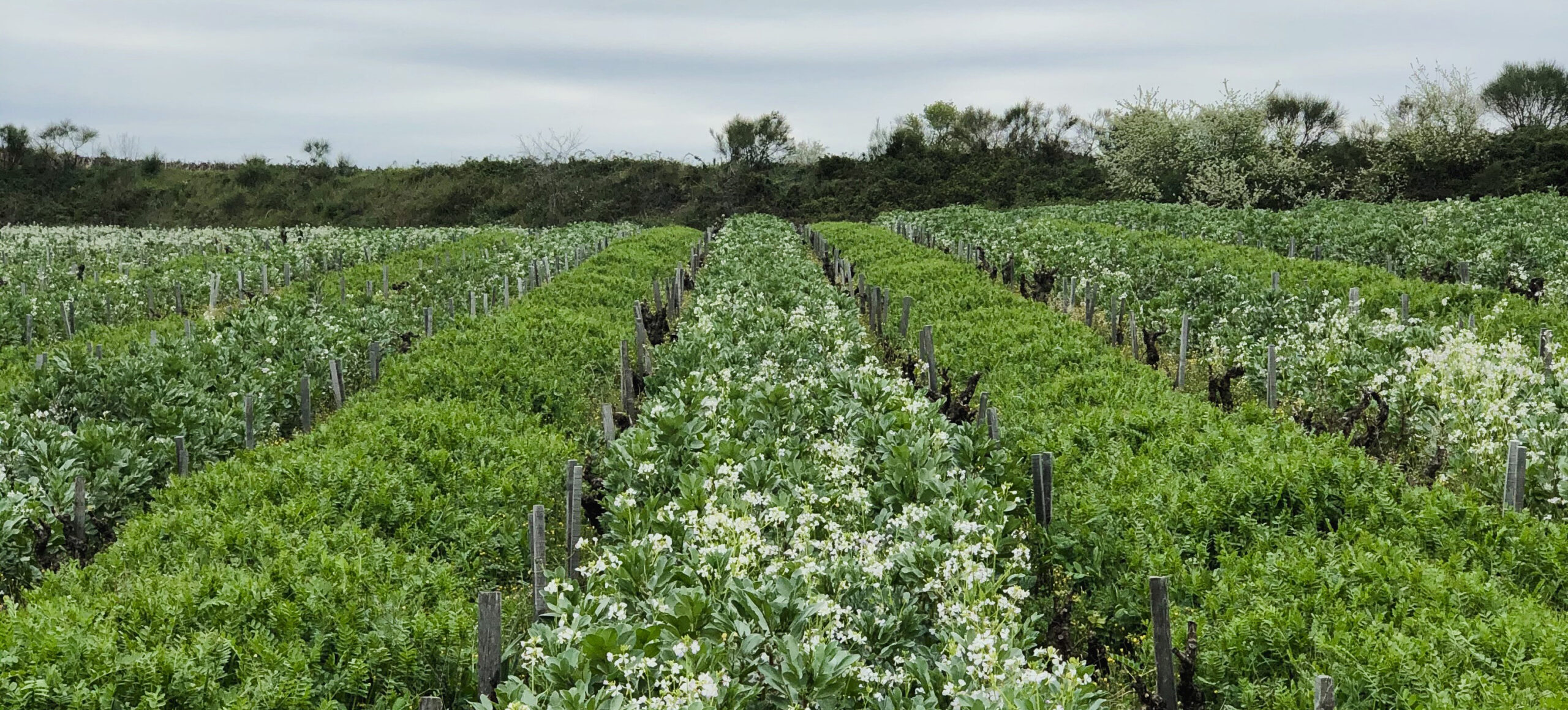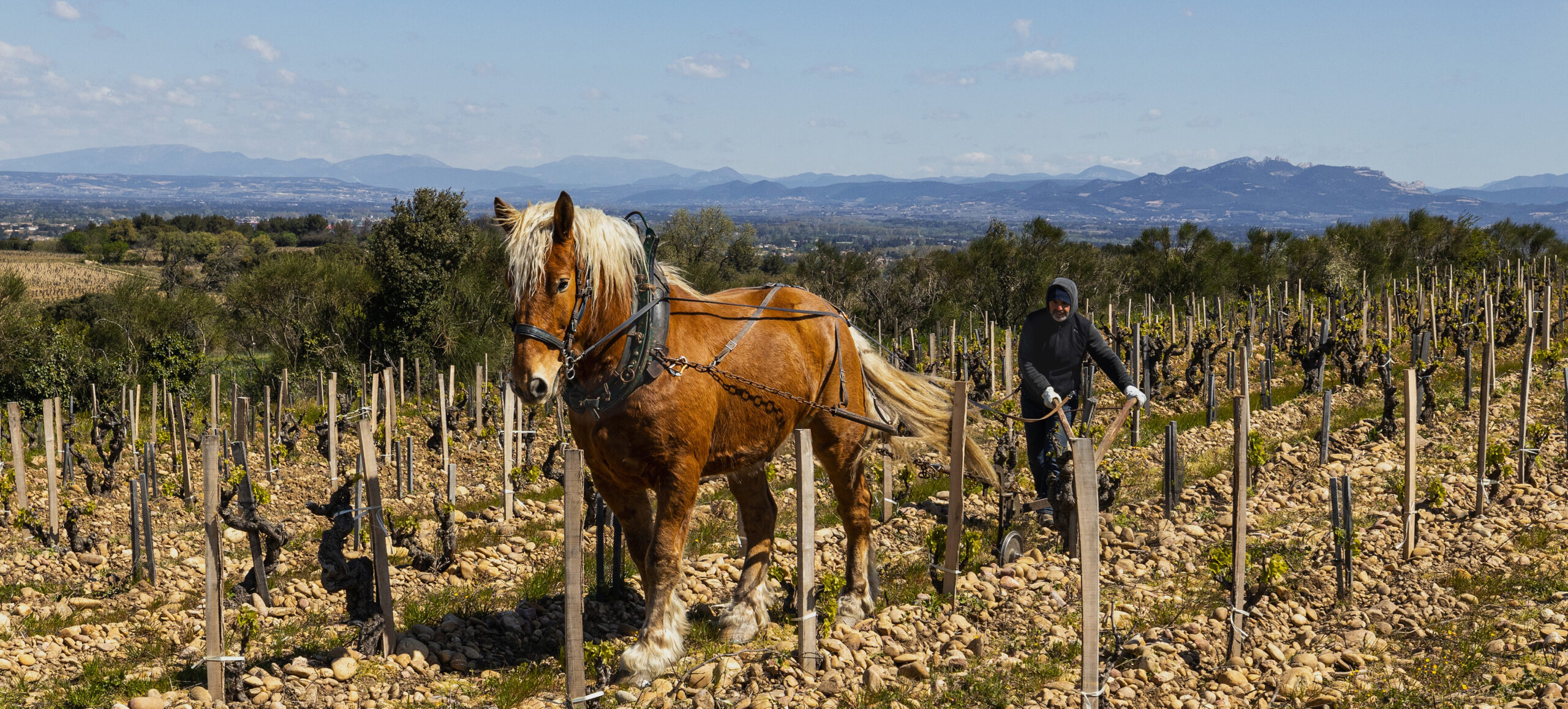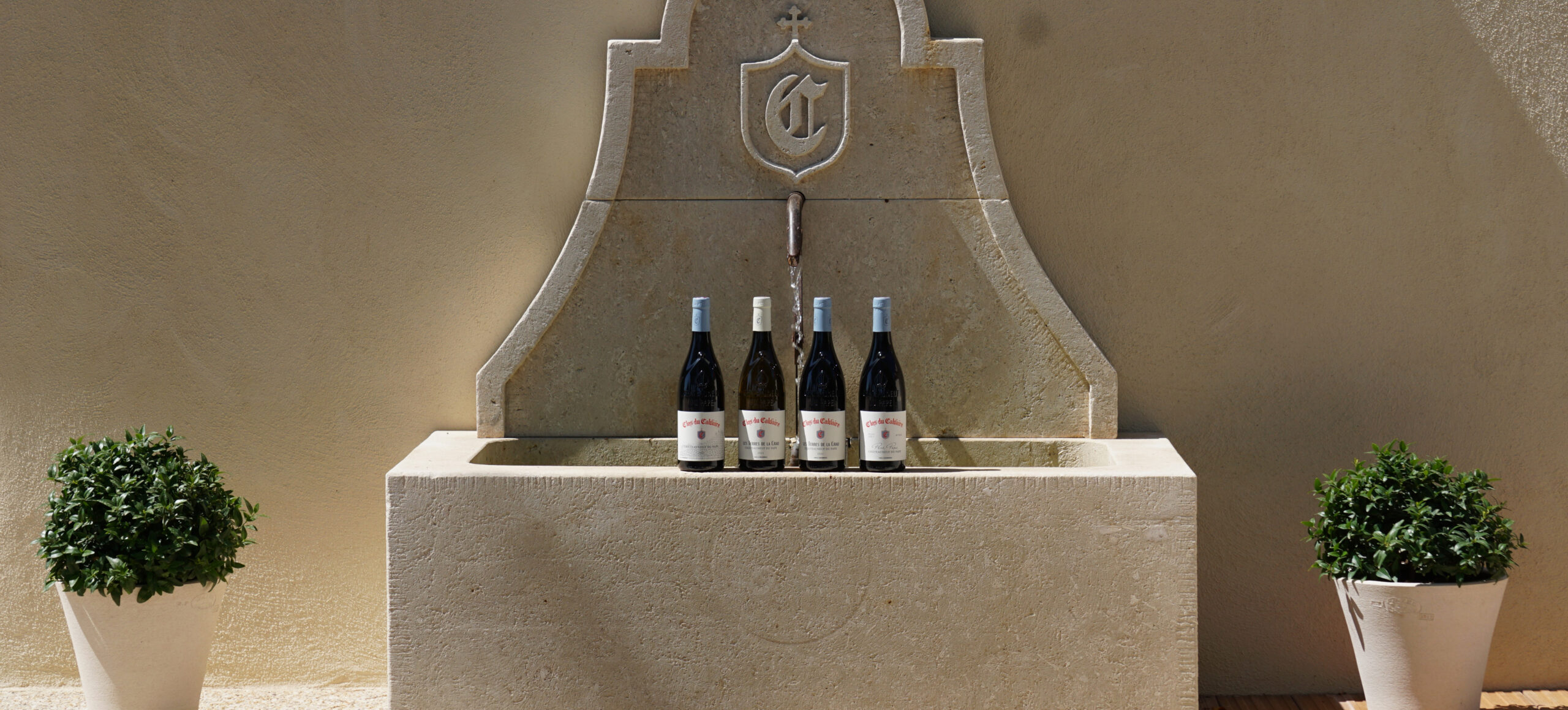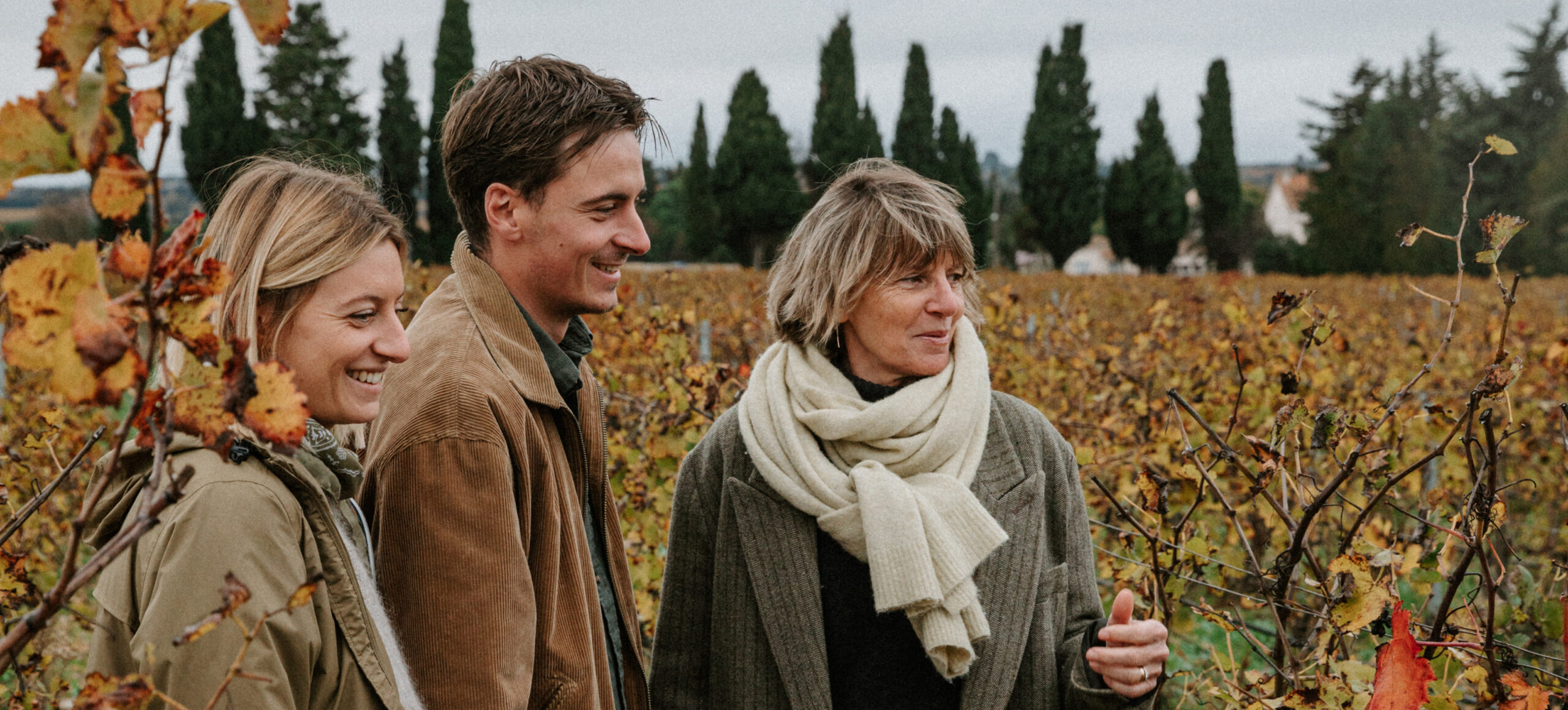Domaine Clos du Calvaire, formerly known as Domaine de Mayard, is nestled in the heart of the prestigious village of Châteauneuf-du-Pape. Today the estate is run by fifth generation winemaker Françoise Roumieux along with her two children, Nicolas and Coline. Although this family run estate has a long history in the appellation, its current iteration, known as Clos du Calvaire, was started in 2022 when the three siblings of the Mayard family decided to split the estate into three parts.
The original Mayard family property was comprised of 40 hectares (30 HA estate and 10 in fermage) with roughly 40 parcels spread across highly diverse terroirs. Starting in 2022, Francoise kept her third of the estate to form Clos du Calvaire supplemented by an additional one-third of the original holdings from Francoise's sister Beatrice who now leases her share of vines to Clos du Calvaire. The remaining one-third is being exploited by Didier Mayard, who currently runs his own domaine.
The Mayard family have always sought to preserve the traditions started by their family and continue to make improvements by modernizing the winery and committing to environmentally friendly agriculture. In fact, at the end of the 19th century, when phylloxera had all but destroyed his vineyards, Gratien Mayard contemplated moving to the United States and starting over. But his devotion eventually won out and instead he chose to stay and re-plant his vineyards, vine by vine.
More recently, the family began organic conversion in 2017 and obtained certification in 2020. When walking through the vineyards, the famed carpet of galets roulés (rolling rocks) - the remnants of Alpine glaciers that have been rounded over millennia by the Rhône river - are underfoot but no longer visible due to the thick, complex vegetation of cover crops growing in and around the vines. As a response to rising temperatures and the regular threat of draught, Francoise Mayard made the bold decision to stop tilling her vineyards and increase both wild and seeded plant-life growing among the vines. This embrace of regenerative agriculture has improved water retention and lowered the temperatures in the soils, thus slowing the ripening process in even the highest of temperatures. As Françoise explains, “It is necessary to respect the soil and the people who work in the vines, as it is the future for everyone.“
Most of the vineyards at Clos de Calvaire are situated in the southern portion of the appellation and are composed sand, limestone and pebbles. The diversity of subsoils in the various growing zones lends a different element to the wine and contributes to a complex patchwork that is the hallmark of Chateauneuf-du-Pape. In fact, each parcel is vinified separately, and later blended to form a whole that the Mayards always say is always better than the sum of its parts!
The Clos du Calvaire range starts with their eponymous, entry-level Châteauneuf-du-Pape which is a blend of various plots. In the sprit of the new generation who is slowly taking charge of this domaine, the wine is vinified with a sense of style, grace and lift that is often not associated traditional, big, burly Chateauneuf. At the top of the range is their cuvee called Les Terres de la Crau which comes from the family's small holdings in the famed lieu-dit of La Crau in the northeast, where they have 100 year old Grenache vines planted on clay soils. These old vines are very low yielding and the clay helps them retain moisture, a great help in the hottest years.
The winemaking at Clos du Calvaire emphasizes gentle handling at every stage. All grapes are picked by hand into small crates to avoid the risk of crushing and oxidation. Depending on parcel and vintage, the grapes are usually partially destemmed, and then gravity-fed into epoxy-lined concrete vats for a natural fermentation with native yeasts. To extract color and tannins, they employ gentle delestage or remontage once per day during fermentation. Clos du Calvaire is aged mostly in concrete while Les Terres de La Crau spends 18 months in neutral foudres. The Mayards are also experimenting with Amphora for aging as they feel that the small oxygen exchange in these vessels is beneficial for the refinement of the tannic structure of the wines.
The evolution and generational shift that has accompanied the creation of Clos du Calvaire has been exciting to watch as it has unfolded. Today, when we taste the new wines, we like to say, "it's not your parent's Chateauneuf" and we mean it! With a dynamic history and an eye toward the future, the Roumieux trio is putting out naturally farmed wines with finesse, class and a freshness and lift that elude so many of today’s Châteuneuf-du-Pape.
